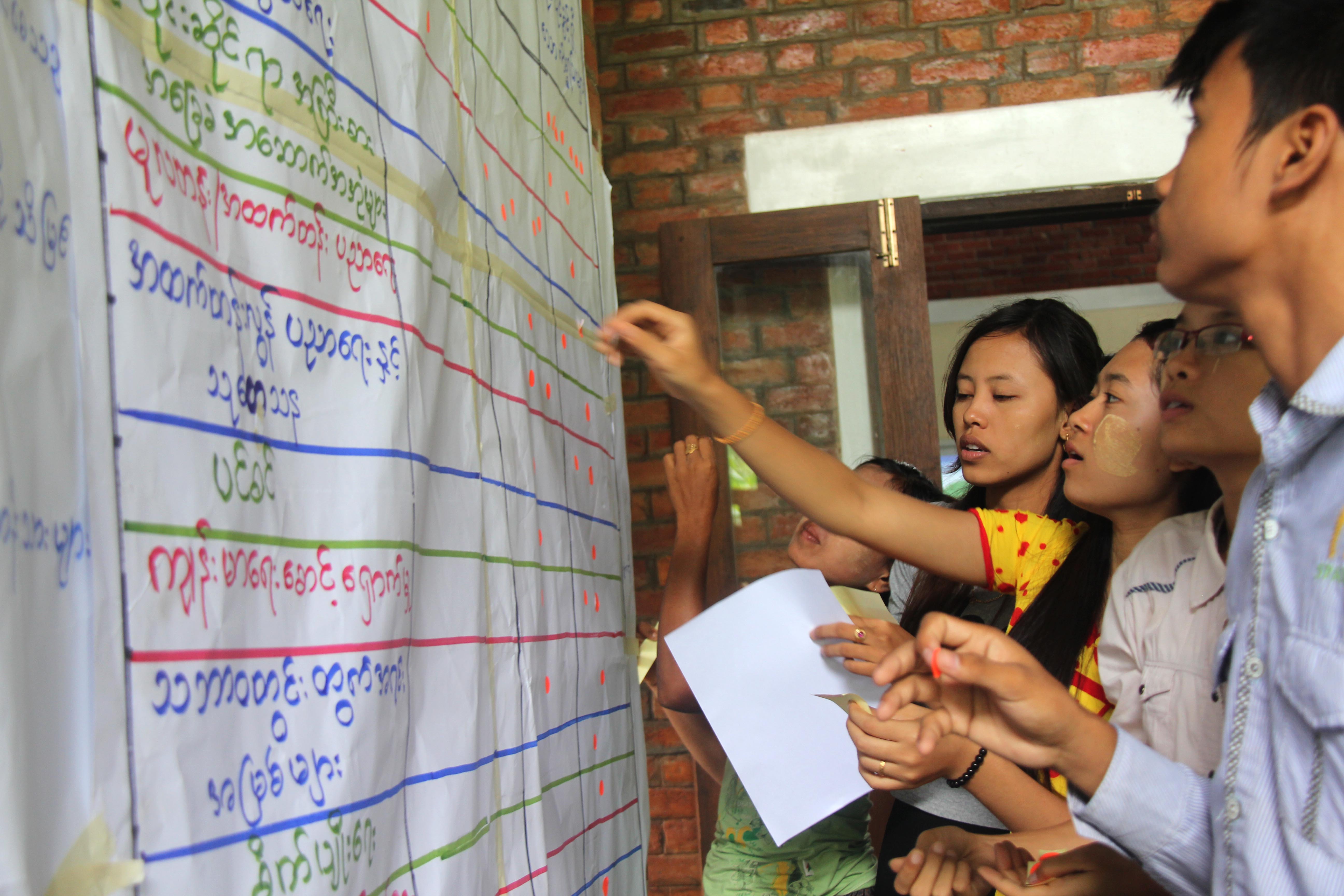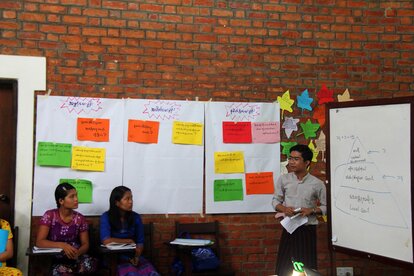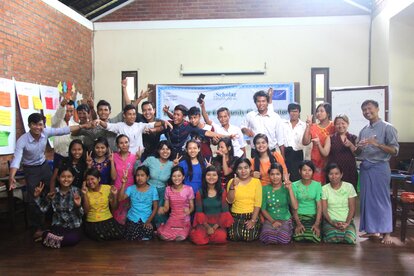The Importance of People’s Participation in Sustaining Democracy

“For a sustainable, democratic system, the participation of people is very important”, was one of the key takeaways of participants from Magway Region who attended a Training of Trainers (TOT) for Community Civic Educators conducted by Scholar Institute.
“The participation of citizens is crucial. To move forward to a system of democracy, the individual has to change first. They have to understand and apply democratic values and principles, and only then will the institutions change. After that, democracy will be consolidated, “says Mr Zay Ye, one of the participants from the TOT training.
Starting in June 2017, TOT trainings are being conducted as a follow up to “Public Participation for Democracy” trainings conducted by the local partners of the Friedrich Naumann Foundation – Myanmar Egress, Scholar Institute, Hornbill Organization and Naushawng Development Institute. These trainings give opportunities to participants who would like to help spread their own knowledge within their community as a civic educator.
Ms Thin Yu Nandar Kyaw, a young female participant from Sipin Village, Magway Division also recognizes the importance of local buy-in, “Only if people get involved in the process, can democracy sustain itself.”
A total of thirty trainings have been conducted in remote areas of Rakhine, Magway, Chin, Sagaing, Kayin, Mon, Ayeyarwaddy and Kachin since late 2016.
In the TOT trainings, participants are trained to be able to lead civic education training in their own community by themselves through several practice and feedback sessions, and intensive reading modules.
Pyae Sone, a Senior Trainer from Scholar Institute shared the challenges he is facing while conducting TOTs, “as the participants are from the remote and hard-to-reach areas of the country, they have very little knowledge about politics and civic education. And some even have no knowledge at all.”
“The situation and challenges of each training are different. In some trainings, the participants have some knowledge about politics, but in some trainings no knowledge at all. It varies based on different location and background of the participants” he said. “For example, those who work for civil society organizations already have some basic knowledge. In some trainings, as the participants’ level of knowledge is very low, we have to change the whole lesson plan and make it very simple for them.”
FNF and its four local partners conducted a total of 171 Voter Education trainings in 2015 General Elections and 29 Voter Education Trainings in 2017 by-elections. These trainings will help increase the knowledge and participation of citizens from the most remote areas of Myanmar in the democratic transition process.

